Twin Hong Kong rallies as protesters defy China warnings
Thousands marched through two separate districts on Sunday afternoon
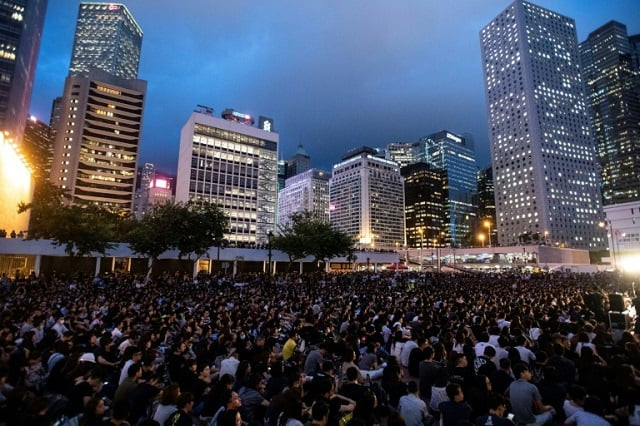
Weeks-long unrest has plunged the city into its deepest crisis in decades. PHOTO: AFP
Thousands marched through two separate districts on Sunday afternoon, the latest protests in another weekend of explosive unrest.
On Saturday, Tsim Sha Tsui -- a harbourside district known for its luxury malls and hotels -- was filled with acrid plumes of tear gas as small groups of hardcore protesters battled police in streets usually brimming with tourists and shoppers.
Hong Kong police make fresh arrests, city braces for further protests
China's official Xinhua news agency published a new commentary on Sunday saying "ugly forces" were threatening the country's "bottom line".
"The central government will not sit idly by and let this situation continue," the agency wrote.
Semi-autonomous Hong Kong has seen two months of protests and clashes triggered by opposition to a planned extradition law that quickly evolved into a wider movement for democratic reforms.
But authorities in Hong Kong and Beijing have only hardened their stance. Dozens of protesters were charged with rioting last week while the Chinese military said it was ready to quell the "intolerable" unrest if requested.
The largely leaderless protest movement remains unbowed.
Two gatherings were held on Sunday, one in Tseung Kwan O district and the other in Kennedy Town, while the city is also gearing up for a strike on Monday.
The latter rally was not far from the Liaison Office, the department that represents China's central government in Hong Kong.
Two weeks ago, the office was pelted with eggs and paint in a move that infuriated Beijing and sparked the rapidly escalating warnings from the mainland.
Protesters vowed to keep hitting the streets, even though their movement has had little success.
"I'm more worried than hopeful," Florence Tung, a 22-year-old trainee lawyer who was among the thousands marching through Tseung Kwan O said.
"It's like no matter how much us citizens do, we cannot change the government," she added, referring to the city's unelected pro-Beijing leaders.
Kai Hou, a 41-year-old education worker, said he disagreed with the tactics of more hardcore violent protesters but supported their overall goals.
"Not everyone may approve of their radical acts, but their goal is simple, they want to build a better Hong Kong," he said.
The last fortnight has seen a surge in violence on both sides with police repeatedly firing rubber bullets and tear gas to disperse increasingly hostile projectile-throwing crowds.
A group of government supporters also attacked demonstrators, putting 45 people in the hospital, with many accusing the police of being too slow to respond.
In Tsim Sha Tsui, masked demonstrators smashed the windows of cars in a police parking lot and used a large slingshot to launch bricks at the building.
Others put up barricades on busy shopping thoroughfares and temporarily blockaded a cross-harbour tunnel.
Police fired tear gas there and in Wong Tai Sin, a nearby working-class district where large crowds of angry residents joined protesters.
Police said they detained "over 20 people" throughout the evening, bringing the total number of arrests to more than 200 since the protest movement exploded on June 9.
Anger towards the police is at record levels with officers increasingly derided in chants as Beijing's enforcers -- although police deny using excessive force and say they are facing increasingly hardcore protesters.
Under the terms of the 1997 handover deal with Britain, Hong Kong has rights and liberties unseen on the Chinese mainland, including an independent judiciary and freedom of speech.
China to weigh in on deepening Hong Kong crisis
But many say those rights are being curtailed, citing the disappearance into mainland custody of dissident booksellers, the disqualification of prominent politicians and the jailing of pro-democracy protest leaders.
Public anger has been compounded by rising inequality and the perception that the city's distinct language and culture are being threatened by ever-closer integration with the Chinese mainland.
Hong Kong chief executive Carrie Lam has made few concessions beyond agreeing to suspend the extradition bill, and has shied away from public appearances.
Protesters are demanding her resignation, an independent inquiry into police tactics, an amnesty for those arrested, a permanent withdrawal of the bill, and the right to elect their leaders.

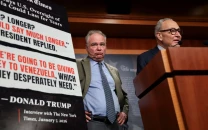

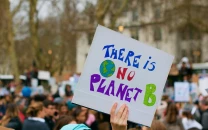

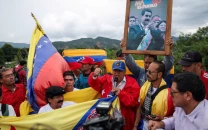
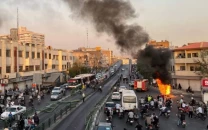











COMMENTS
Comments are moderated and generally will be posted if they are on-topic and not abusive.
For more information, please see our Comments FAQ